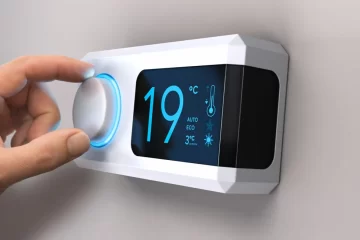Solar Energy Adoption Strategies for Quebec Homeowners

Quebec’s solar energy landscape has transformed dramatically as technology advances and costs decline, making residential solar panels increasingly attractive for environmentally conscious homeowners seeking energy independence and long-term cost savings. The province’s abundant sunshine hours and favorable policies create compelling opportunities for residential solar adoption.
Quebec’s Solar Energy Potential
Despite common misconceptions about solar energy in northern climates, Quebec receives excellent solar radiation throughout the year, with some regions comparing favorably to much warmer climates. Montreal and surrounding areas receive approximately 1,200-1,400 kilowatt-hours per square meter annually, sufficient for productive solar energy generation. Winter snow can actually enhance solar panel performance by reflecting additional light while cold temperatures improve panel efficiency.
Seasonal solar generation patterns in Quebec show peak production during summer months with significant generation continuing through spring and fall. Even winter months provide meaningful solar energy production, particularly on clear, cold days when snow reflects additional light onto solar panels. Understanding these patterns helps homeowners optimize system design and energy storage strategies.
Geographic factors across Quebec influence solar potential, with southern regions generally receiving higher solar radiation than northern areas. However, even northern Quebec communities can benefit from solar energy systems when properly designed and installed. Professional solar assessments determine site-specific solar potential and optimal system configurations for individual properties.
Modern Solar Panel Technology
Photovoltaic panel efficiency has improved significantly in recent years, with modern panels converting 20-22% of available sunlight into electricity compared to 15-17% efficiency in older systems. Higher efficiency panels generate more electricity from the same roof space, making solar viable for more properties while reducing installation costs per kilowatt of capacity.
Monocrystalline silicon panels offer the highest efficiency and longest warranties, making them ideal for Quebec installations where roof space may be limited and long-term performance is crucial. These panels perform better in low-light conditions and maintain efficiency better as they age compared to alternative technologies.
Bifacial solar panels capture sunlight from both front and rear surfaces, increasing energy generation by 10-20% in favorable conditions. These panels work particularly well in Quebec’s snowy conditions where ground reflection provides significant rear-surface illumination. Professional installation ensures optimal positioning for bifacial panel performance.
System Design and Configuration
Grid-tied solar systems offer the most cost-effective approach for most Quebec homeowners by eliminating battery storage costs while enabling net metering benefits. These systems feed excess solar energy back to the electrical grid while drawing power when solar generation is insufficient. Net metering credits help offset electricity costs throughout the year.
Battery backup integration adds energy storage capabilities to grid-tied systems, providing backup power during outages while maintaining grid-tie benefits. Hybrid systems offer the best of both approaches by maximizing solar energy utilization while providing emergency backup capabilities. Professional system design optimizes battery capacity for individual backup power requirements.
Micro-inverter systems provide individual panel optimization that maximizes energy production even when some panels experience shading or other performance issues. This technology ensures optimal system performance while providing detailed monitoring of individual panel performance. String inverter systems offer lower costs for installations without shading concerns.
Installation Process and Requirements
Professional solar assessments evaluate roof condition, structural capacity, shading issues, and electrical system compatibility to determine optimal solar installation approaches. Qualified installers can identify potential obstacles and design solutions that maximize solar energy production while ensuring safe, code-compliant installations.
Roof preparation may include structural reinforcement, roofing repairs, or electrical upgrades to support solar panel installations safely. Professional installers coordinate necessary preparatory work to ensure optimal solar system performance and longevity. Proper preparation prevents future problems while maximizing system reliability.
Electrical integration requires sophisticated connections between solar panels, inverters, monitoring systems, and home electrical panels. Licensed electricians ensure proper grounding, safety disconnects, and code-compliant electrical connections that enable safe, efficient solar system operation. Professional electrical work ensures warranty compliance and optimal performance.
Regulatory Environment and Incentives
Quebec’s net metering program allows homeowners with solar systems to receive credits for excess electricity fed back to the grid, effectively using the electrical grid as a large battery system. These credits offset future electricity consumption, making solar systems more economically attractive while simplifying system design.
Federal solar incentives include tax credits and rebate programs that reduce initial solar installation costs significantly. These incentives change periodically, making timing important for maximizing financial benefits. Professional installers understand available incentive programs and can help homeowners maximize financial benefits.
Municipal building permits and electrical permits are required for most solar installations, ensuring compliance with local building codes and electrical standards. Professional installers handle permit applications and inspections, ensuring compliant installations that meet all regulatory requirements. Proper permitting protects homeowners and ensures insurance coverage.
Economic Analysis and Financing
Solar payback periods in Quebec typically range from 8-12 years depending on system size, electricity usage patterns, and available incentives. After payback, solar systems provide decades of essentially free electricity while increasing property values. Long-term financial analysis shows compelling returns on solar investments for most Quebec properties.
Financing options include solar loans, leasing programs, and power purchase agreements that make solar accessible to homeowners without large upfront investments. Each financing approach offers different benefits and considerations that professional installers can explain. Many homeowners benefit from solar loans that provide immediate savings through reduced electricity bills.
Property value increases associated with solar installations often exceed system costs while providing ongoing electricity savings. Real estate studies show that solar systems add value to properties while appealing to environmentally conscious buyers. Professional installations with transferable warranties maximize property value benefits.
Performance Monitoring and Maintenance
Modern solar systems include sophisticated monitoring capabilities that track energy production, system performance, and potential issues through smartphone applications and web portals. Real-time monitoring helps homeowners optimize energy usage while identifying maintenance needs before they impact performance. Professional monitoring services can provide proactive maintenance alerts.
Maintenance requirements for modern solar systems are minimal but important for ensuring optimal long-term performance. Professional maintenance includes periodic cleaning, electrical connection inspection, and performance verification that maintains peak system efficiency. Snow removal is generally unnecessary as panels are designed to shed snow naturally.
System warranties typically include 25-year performance guarantees on solar panels with shorter warranties on inverters and other components. Professional installation ensures warranty compliance while providing access to warranty service when needed. Quality installations minimize warranty claims while maximizing system reliability.
Future Expansion and Integration
Solar panel installation designs should consider future expansion possibilities for growing families or changing energy needs. Professional system design includes provisions for adding panels or integrating battery storage in the future without requiring complete system replacement. Forward-thinking design provides flexibility for changing circumstances.
Electric vehicle charging integration allows solar systems to power electric vehicles with clean, renewable energy while reducing transportation costs. Professional electrical infrastructure preparation enables seamless EV charger integration when electric vehicle adoption occurs. Solar-powered transportation provides maximum environmental and economic benefits.
Smart home integration enables sophisticated energy management that coordinates solar generation with home energy consumption patterns. Advanced systems can automatically manage appliances, energy storage, and electric vehicle charging to maximize solar energy utilization while minimizing grid electricity consumption.
Energy independence goals become achievable when solar systems integrate with battery storage and backup generation to provide complete electrical self-sufficiency. Professional system design can create comprehensive energy independence solutions that eliminate dependence on the electrical grid while providing enhanced reliability and cost savings.
Quebec homeowners who embrace professional solar energy solutions enjoy reduced electricity costs, enhanced energy independence, and environmental benefits while contributing to the province’s clean energy future.










